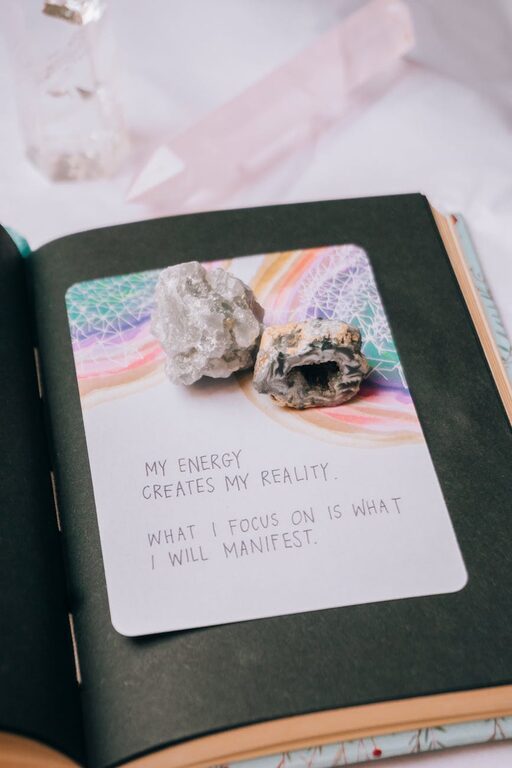Journaling is more than just putting pen to paper—it’s a powerful tool to clear your mind, organize your thoughts, and sharpen your focus. Whether you’re struggling with a busy mind or aiming to improve your productivity, developing a journaling habit can help bring clarity and direction to your day. In this guide, we’ll explore practical tips and methods to make your journaling practice effective and enjoyable.
Why Journal for Clarity and Focus?
Our minds can often feel cluttered with endless tasks, worries, and ideas. Journaling acts as a mental decluttering process, helping you:
– Identify priorities and set clear goals
– Track your progress and reflect on challenges
– Manage distractions by organizing thoughts
– Boost creativity by exploring ideas freely
By dedicating time to writing, you create a moment of calm and gain perspective, which is essential for focusing on what truly matters.
Getting Started: Choose Your Tools
Before you dive in, consider what format and tools work best for you. You can journal:
– Using a paper notebook
– On your phone or tablet with an app
– On your computer with a writing program
Choose a format that you find comfortable and accessible. Many people find that physically writing by hand helps with memory and emotional connection, but digital options can be convenient and easy to organize.
Setting Up Your Journaling Routine
Consistency is key. Here are some tips to help build a journaling habit:
– Pick a regular time: Many prefer mornings to set intentions or evenings to reflect. Find a time that fits your schedule.
– Start small: Even 5-10 minutes can be effective. You don’t need to write pages every day.
– Create a quiet space: Find a calm environment free of distractions to help you focus on writing.
– Use prompts: Sometimes a question or theme can kickstart your thinking and writing.
Journaling Techniques for Clarity and Focus
Different journaling methods offer unique benefits. Below are some popular approaches you can try.
1. Morning Pages
Popularized by Julia Cameron’s The Artist’s Way, morning pages are three pages of free writing done first thing after waking. The idea is to write without editing or censoring yourself. This clears mental clutter and reveals what’s really on your mind.
How to try it:
– Write whatever comes to mind for about 15-20 minutes.
– Don’t worry about grammar or spelling.
– Let your thoughts flow freely without judgment.
2. To-Do Lists and Priorities
Listing tasks can help you focus on what’s important. Prioritize your list by labeling urgent and important tasks.
How to try it:
– Break your day or week into manageable chunks.
– Write clear and specific tasks.
– Review and update your list regularly.
3. Reflective Journaling
Reflective journaling involves reviewing your experiences and emotions to gain insight and clarity.
How to try it:
– Ask yourself questions like “What did I learn today?” or “What distracted me and how can I reduce it?”
– Write briefly about your feelings and observations.
– Use this practice to identify patterns and areas to improve.
4. Mind Mapping
This is a visual journaling technique that helps organize thoughts and ideas around a central theme.
How to try it:
– Start with a main idea in the center of the page.
– Draw branches for related thoughts, tasks, or concepts.
– Add keywords, drawings, or symbols to represent connections.
5. Gratitude Journaling
Gratitude journaling shifts your focus toward positive aspects of your life, promoting mental clarity by reducing stress and negativity.
How to try it:
– Write 3-5 things you’re grateful for each day.
– Be specific and thoughtful to deepen the impact.
– Reflect on how these positives influence your mindset and productivity.
Tips for Effective Journaling
– Be honest: Your journal is for you, so be truthful without fear of judgment.
– Don’t overthink: Allow yourself to write freely without worrying about perfection.
– Use bullet points: When clarity is needed, bullet points or lists simplify your thoughts.
– Review regularly: Occasionally read past entries to recognize progress and recurring themes.
– Combine techniques: Feel free to mix methods like lists and reflections based on your needs.
Overcoming Common Challenges
– Struggle to start writing? Begin with a prompt or a simple question like “What’s on my mind right now?”
– Lack of time? Commit to a few minutes daily or journal 3-4 times a week to maintain momentum.
– Writer’s block? Try changing your environment or using drawing/sketching instead of writing.
– Feeling overwhelmed? Break down your thoughts into smaller parts or use mind mapping.
Final Thoughts
Journaling for clarity and focus is a flexible and personal process. There is no one “right” way to do it. The most successful journaling practice is the one you enjoy and can sustain regularly. Over time, you’ll discover which techniques help you best and notice improvements in your ability to manage thoughts, stay organized, and maintain focus throughout the day.
So grab a notebook or open your favorite writing app and start journaling today—your mind will thank you for it!



